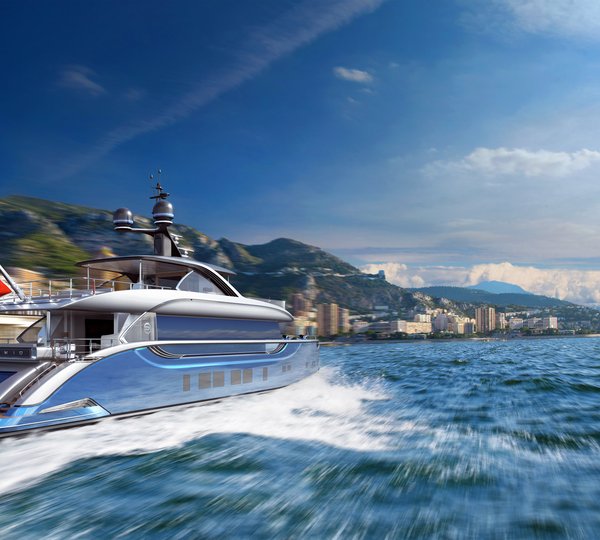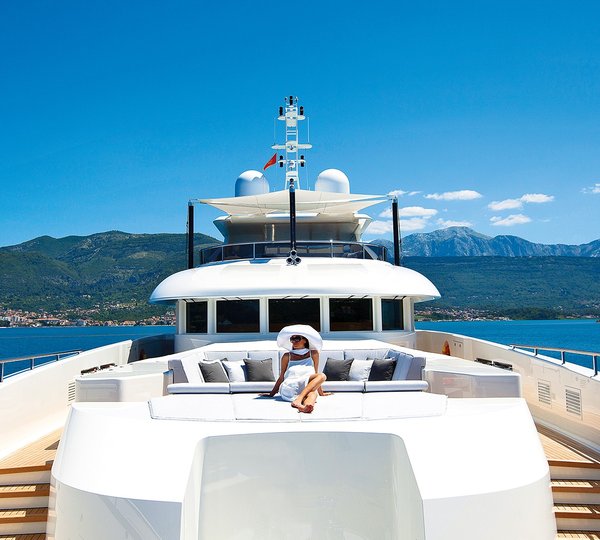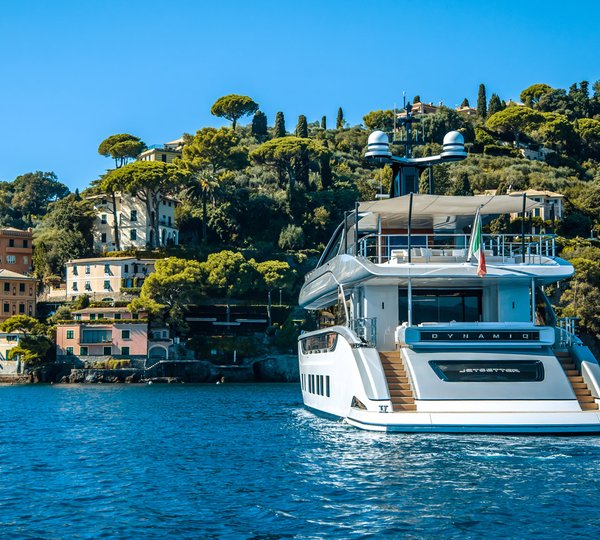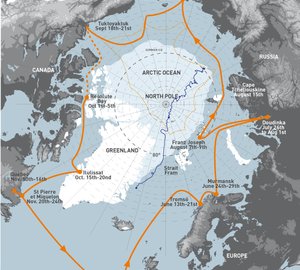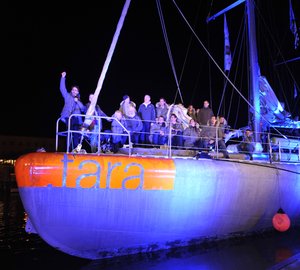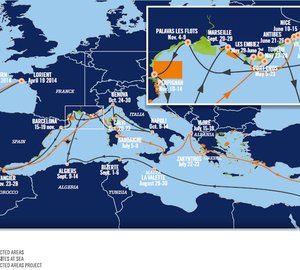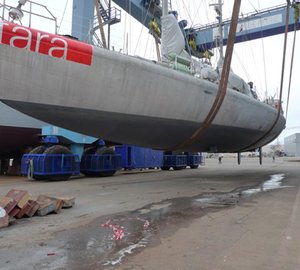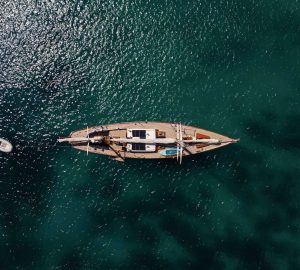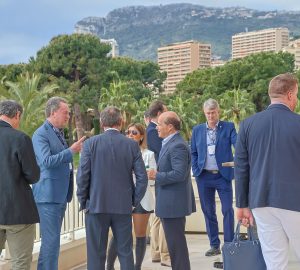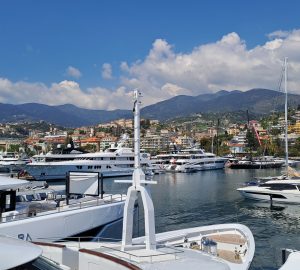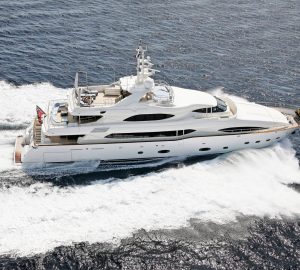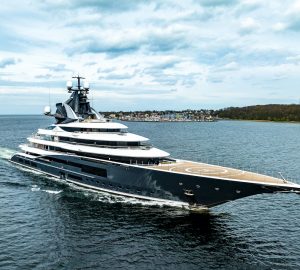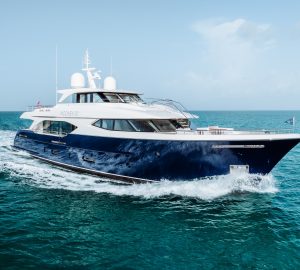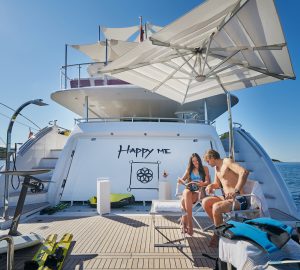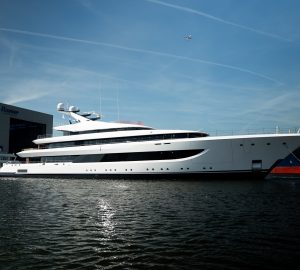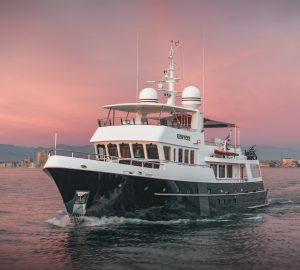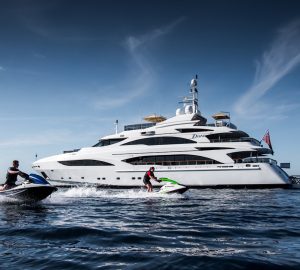Saturday, November 22, 2014, the first day of ‘European Waste Reduction Week’, saw sailing yacht Tara return to her home port of Lorient, following the successful completion of an expedition in the Mediterranean from May to November 2014. This expedition comprised scientific research about plastic pollution at sea, as well as educational outreach during stopovers concerning plenty of environmental issues related to the Mediterranean.
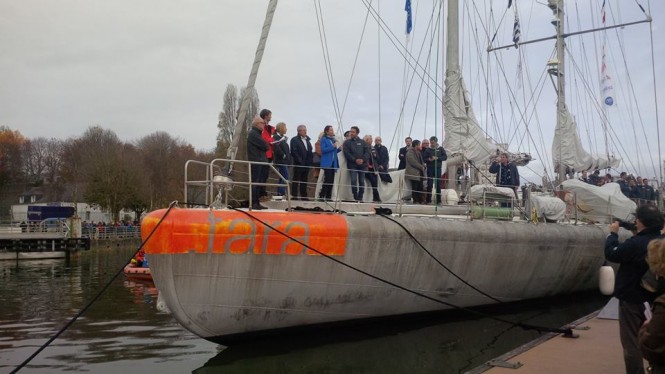
Expedition yacht Tara in the port of Lorient on November 22, 2014 - Image credit to Tara Expeditions
The strategy of the Tara Mediterranean expedition was to collect samples offshore, but also along the coasts, near the mouths of rivers, and in harbors, to study influences coming from land. At each sampling station, collection was done at the surface using special nets. The samples will be sent to partner laboratories for chemical identification of the collected plastic, analysis by microscopy, and also for studies of the living organisms colonizing the plastic, and the interaction between zooplankton (the base of the marine food chain) and plastic.
Analyses of samples will begin in December, and the first results will be published in spring 2015. But the initial findings of Tara Mediterranean are highly significant!
According to Tara Mediterranean’s scientific director Gaby Gorsky (CNRS/UPMC), and the expedition’s scientific coordinator Maria Luiza Pedrotti (OOV CNRS/ UPMC), “Plastic fragments were found in every net haul, throughout the entire Mediterranean from west to east. Greater concentrations of plastic were observed near big cities, but there were also significant concentrations in the high seas.” Martin Hertau, one of Tara’s two captains, confirmed, “We thought certain areas very far from big cities would be spared, but even these are affected, for example between Crete and Tunisia.” According to Francois Galgani, researcher at Ifremer, “The Mediterranean Sea has, on average, the world’s highest density of microplastic.”
The Tara Mediterranean expedition, the 10th for expedition yacht Tara since 2003, visited 13 countries with 20 stopovers (in France, Italy, Monaco, Albania, Greece, Lebanon, Cyprus, Malta, Tunisia, Algeria, Spain, Morocco and Portugal). Nearly 12,000 adults and school children from around the Mediterranean were able to visit the schooner.
Five workshops were conducted with local citizens, experts and policy makers in order to foster international cooperation and on-site projects. There is an urgent need to move towards solutions such as water treatment, waste management, innovation for biodegradable plastic, and promoting sustainable tourism, education and the creation of Marine Protected Areas. A “Blue Book” to be released in March will highlight local initiatives and solutions, and will review the exchanges accomplished during the Tara Mediterranean mission.
The Tara Mediterranean expedition in numbers:
– 13 countries
– 20 stopovers
– duration: 7-months
– 8,000 nautical miles (= 15,000 km)
– 2,300 samples collected to study the distribution of micro-plastics and zooplankton; to analyze the chemical composition of micro-plastics and the microbial communities attached to the plastic; to study POPs (Persistent Organic Pollutants) associated with plastic. Analyses of images, temperature, salinity, turbidity and pigments.
– 350 net hauls (each net was towed at the sea surface for an hour, or 4.5km)
– 14 laboratories involved
– 12,000 adults and school children welcomed on board
– 11 artists-in-residence (An exhibition of their work will be held in Paris in April and May 2015)
– 10 nationalities represented (Algerian, American, Brazilian, French, Israeli, Italian, Lebanese, Moroccan, Portuguese, Tunisian)
– T° max of air: 34° C; T° max of water: 31° C in the eastern basin of the Mediterranean.
T° max in the engine room: 60° C
– 3 gale force winds (between 7 and 9)
– More than 400 media releases
Plastic in the Mediterranean : BEYOND THE FACTS, WHAT SOLUTIONS?
March 10 – 11, 2015, Tara Expeditions will organize with the Surfrider Association and the Prince Albert II of Monaco Foundation a conference entitled: “Plastic in the Mediterranean: Beyond the Facts, What Solutions?”
The purpose of the conference is to initiate a dialogue between participants (industry, civil society, citizens, scientists and politicians) and to develop actions to curb plastic pollution. This conference, open to the general public, and will take place in Monaco.
Tara in 2015: en route to the Climate Conference: The highlight of 2015 will be Tara’s stay in Paris during November and December. The schooner will be an ambassador for the world ocean, docked alongside the Ocean and Climate Pavilion. Before and during the Climate Conference in Paris (COP21) in December 2015, this pavilion (under the patronage of UNESCO/Intergovernmental Oceanographic Commission) will shelter dozens of NGOs, scientific institutions and universities, with the aim of bringing greater visibility to issues linking the ocean and climate. A series of exhibitions, screenings, lectures, and workshops for schoolchildren will also be held at the Tara Base in Paris (11 Boulevard Bourdon, 75004) on the theme “Ocean and Climate”. A feature film co-produced by Tara Expeditions is also in preparation, with a planned release in November. Prior to that, beginning in March 2015, Tara will voyage to several cities in France to inform the public about these issues.
Partners of the Tara Mediterranean expedition
agnès b., Fondation Veolia, IDEC Group, Serge Ferrari, Prince Albert II of Monaco Foundation, Lorient Agglomeration, IOC/UNESCO, CNRS, UPMC, University of Maine, University of Michigan, NASA, AFP, Le Monde, RFI, FRANCE 24, MCD, Le Monde Futura Science, MedPAN, European Surfrider Foundation, Oceanographic Observatory of Villefranche-sur-mer, Ecole Normale Supérieure, Free University of Berlin, IFREMER, Oceanographic Observatory of Banyuls, University of South Brittany, University of South Toulon, Aix Marseille University, University of Corsica.

